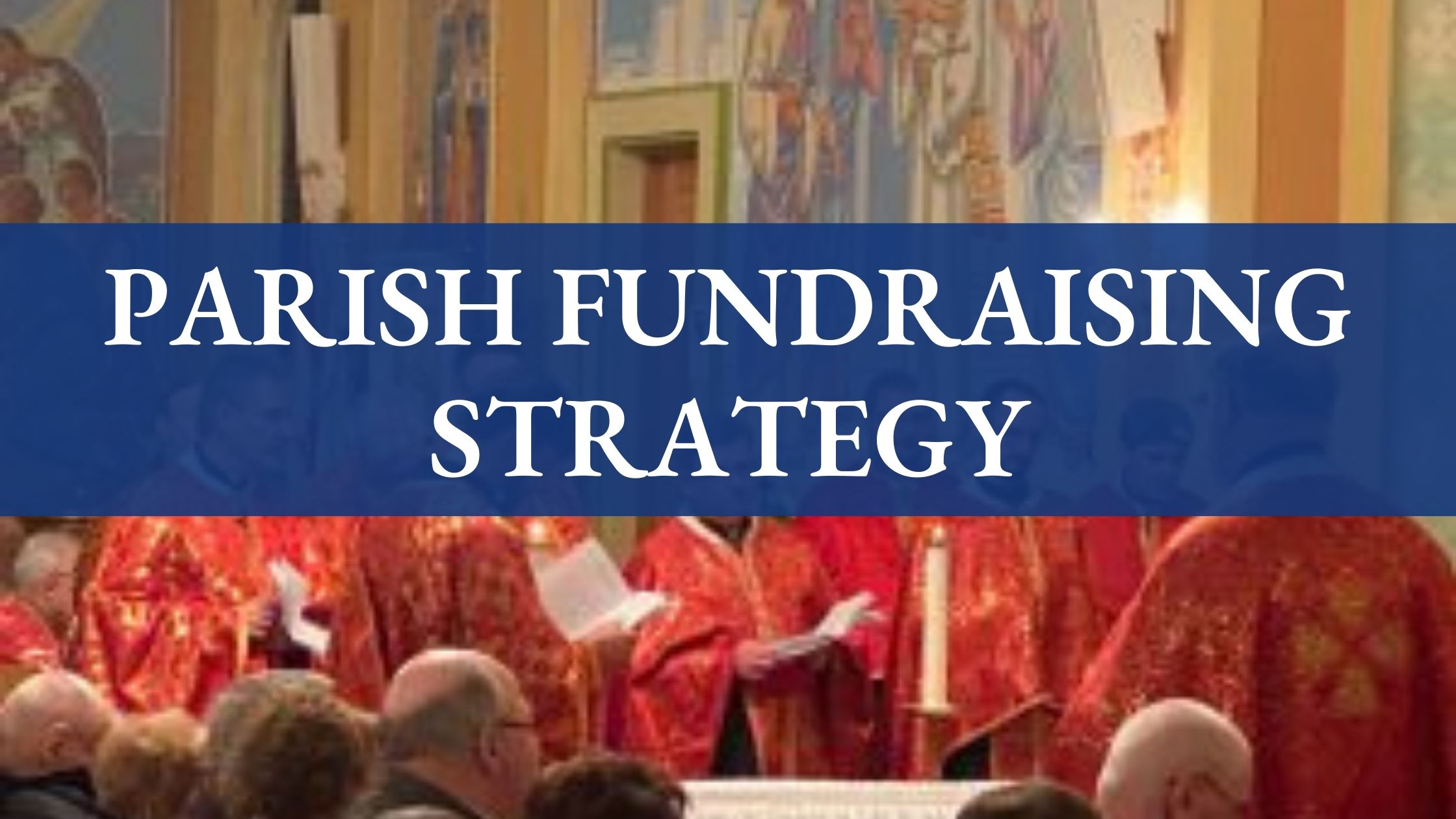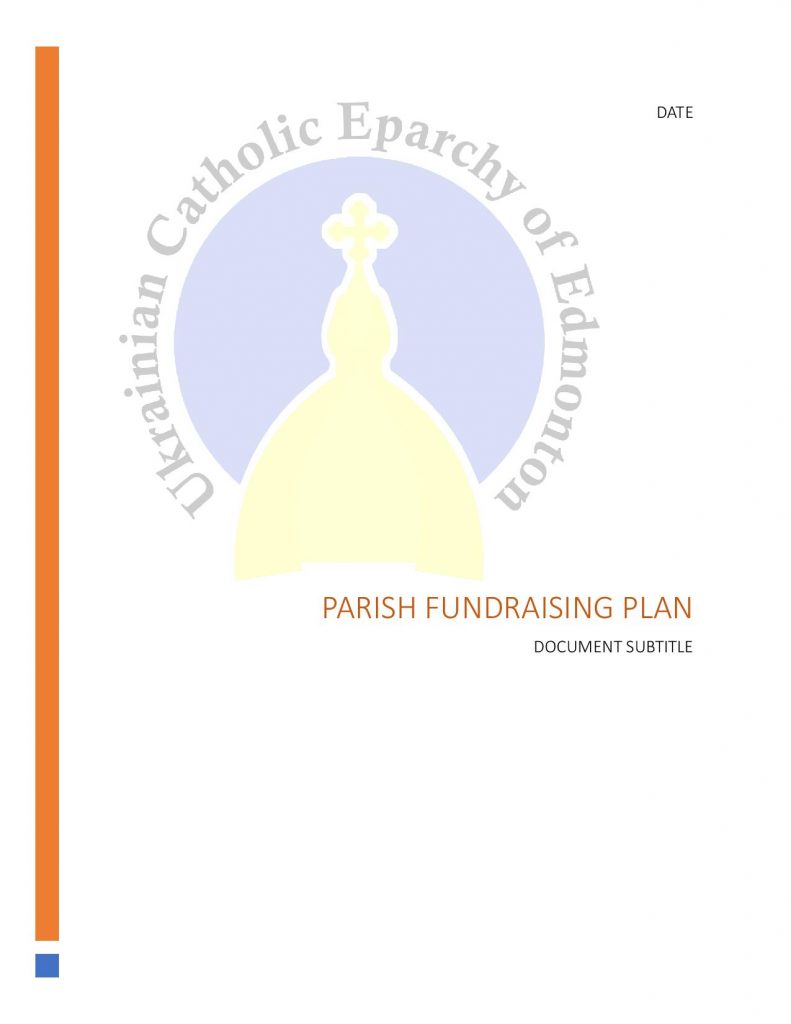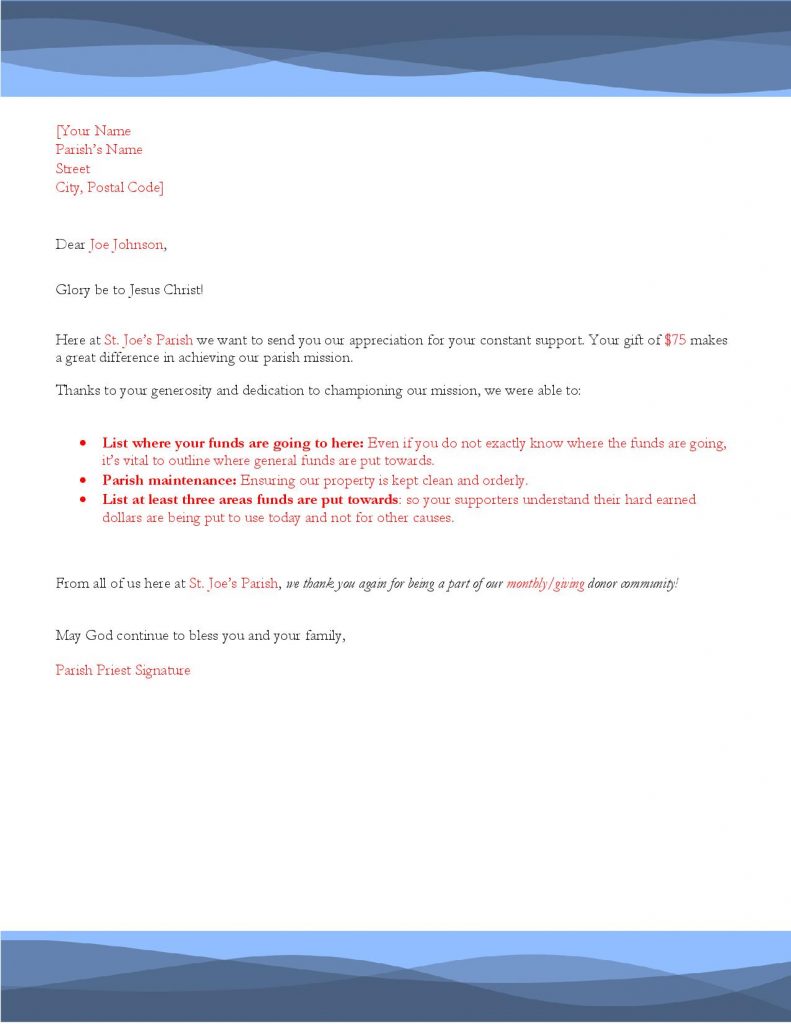What is the Current State of Your Fundraising Strategy?
Good stewardship is vital to the success of our parishes, so it’s important your parish has a plan for their fundraising strategy and how you intend to ensure the long-term sustainability of the mission of the church. Here is a quick rundown of how to start your parish’s fundraising strategy. Start off by asking yourself the following…
- Do I thank donors for supporting my parish’s mission?
- Do I build relationships with all my donors through calls and meeting?
- Do I offer planned giving opportunities and have a clear guide for planned giving (estates and bequests)?
- Do I find opportunities for sponsored events?
- Do I provide a variety of giving opportunities other than the church basket?
- Does my parish have an Evangelization Plan to bring more people to our pews?
After asking yourself these questions, you have an understanding of your parish fundraising strategy’s current state. Now you can move on to work on some of the key areas of improvement.
An Interview with a Fundraising Expert
In this expert interview, we discuss:
- Parish best practices
- Tips+Tricks
- Special event ideas
- Important reminders
- Rural parish fundraising strategies
6 Steps to Start a Parish Fundraising Strategy
1) Make a team.
The first stage in starting parish fundraising is creating a fundraising committee. This can be done either at a parish level or a district-wide level. If your parish is small, having one or two individuals on a fundraising team is perfectly fine.
Consider the skillsets you need in your fundraising team; It would be helpful to have someone who has basic knowledge in sales (to understand how to connect to people), graphic design (to understand colors and how to visually present materials), technology (to post on your website, send emails, post on social media), operations (someone directly involved in what you’re fundraising for), and accounting (to account for the funds raised). Of course, you won’t find perfect fits for every team, but consider trying to find a group of people from a variety of backgrounds.
2) Choose your method of fundraising.
How will you fundraise for a certain strategy? Will you use an appeal letter? Bake sale? Team with parish organizations? Raffles? Events? Personal meetings? Silent auctions? Have a corporate sponsor?
Tip: The silent auction at the Bishop’s Gala used items donated from the community. It was a great hit with attendees. Consider asking your community if they have items to give away for a silent auction.
3) Choose your promotion methods.
How will you promote your fundraising strategy? Will you have a kick-off day or closing ceremony? Will your report progress in parish bulletins? Post on social media? Share on websites? Create a brochure? Send out an email informing parishioners of the fundraising event? Have a fundraising thermometer? Have planned giving documents? Ensure this is discussed and included in the planning stage.
Tip: Read our article How to Write a Parish Appeal Letter for how to start one effective method of fundraising.
4) Research and plan.
Research the immediate and long-term necessary needs of the parish or district. People are more likely to donate when there is a need. Talk to all the ministries of your parish and find what those needs are and write them down. Even if you are raising funds for general operations, ensure you have a list of where funds would go. Never ask for funds without saying what you will do with the funds, this fundraising strategy will fail.
After researching the needs of the parish, you can start your annual fundraising plan. This plan will outline the roles of individuals and what you hope to achieve in the upcoming years. We have an editable template your parish can use today to help in fundraising.
Download now: Our Parish Fundraising Plan
This simple editable Microsoft Word template outlines your Parish:
- Fundraising team
- Parish Mission
- Fundraising Methods
- Fundraising Schedule
- Fundraising objectives and value statement
- Fundraising conclusion
Feel free to edit this template and add any additional information your parish may require.
5) Build a case for support.
Create a value statement, reasons, and story for supporting your parish cause. Use these three statements throughout your entire communications strategy of the year. A story, for example, could be a written account of how someone benefitted from the initiative you are raising funds for. This is also a great way to show how your everyday parishioners are impacted by your actions.
6) Thank all donors no matter what.
This step is vital to do for your parish. Ensure every donation is met with a thank-you. Even a bare minimum thank-you email can be much appreciated. A phone call from the parish pastor is even more impactful.
We have attached a thank-you letter template for you to use. There of course are numerous ways you can thank parishioners for their support, but whatever method you choose, thanking them is a required step.



